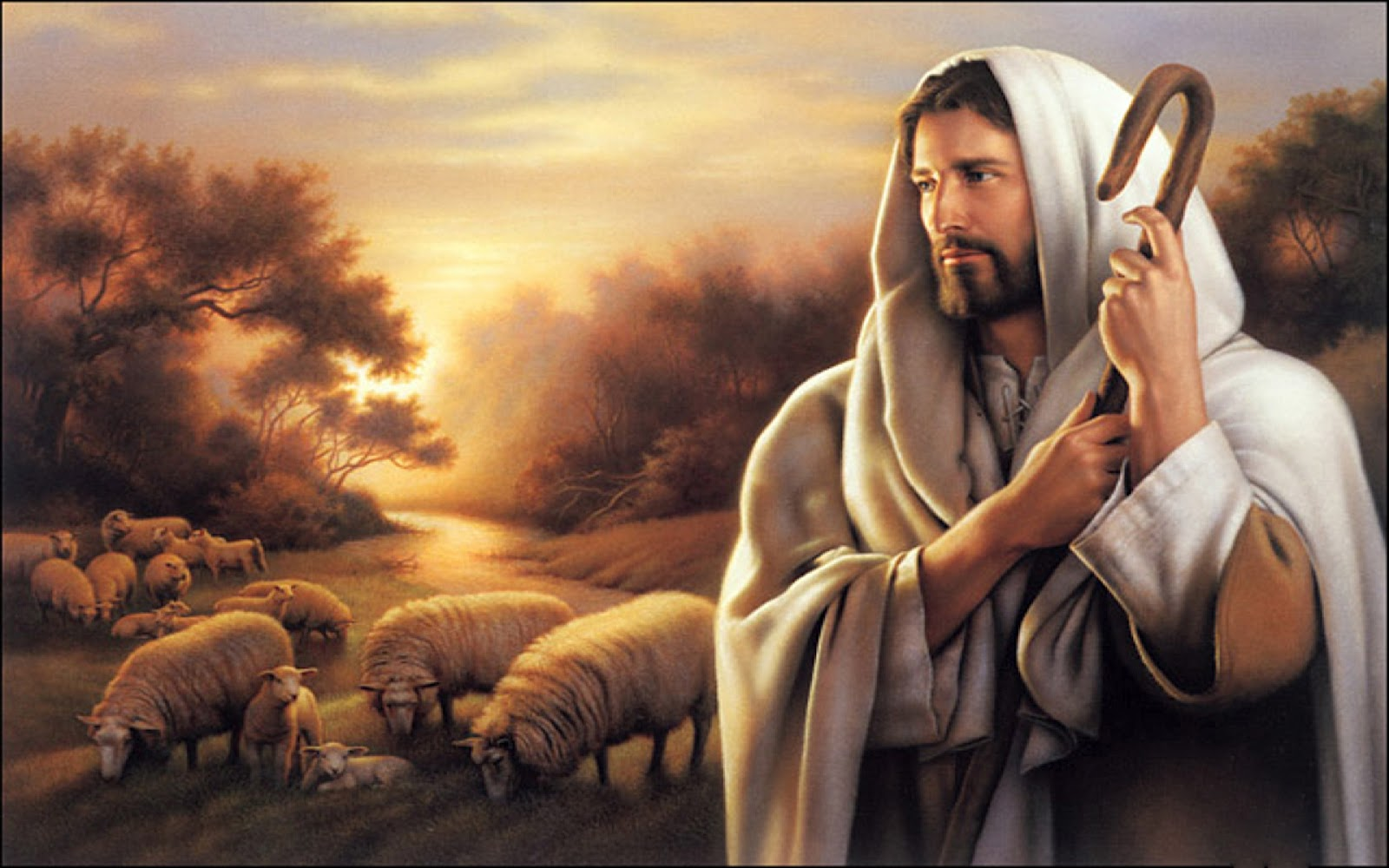JESUS THE GOOD SHEPHERD
JESUS THE GOOD
SHEPHERD
The herding of sheep was one of
the most common professions in the ancient world. People understood how important a shepherd
was to the sheep. Without him, they were
helpless. At times a good shepherd had
to risk his life to protect them. He had
few possessions and lived with the sheep in the fields. The shepherd was important not only to the
sheep but to the population in general.
If the sheep were not nourished and protected, they would not be a
steady source of food and wool.
Moreover, sheep were essential to the most important religious
ceremonies of Israel, especially Passover.
The ritual sacrifice of a healthy, one-year old male lamb, and its
consumption by the family or families that offered it, was the heart of its
observance.
At the beginning of the establishment
of the kingdom of Israel and the end of the reign of the judges, some good and
some bad, God chose a shepherd to lead his people. King Saul had proven to be unworthy, and so
God sent the prophet Samuel to anoint David as his successor. He was taken from his father’s
sheepfold. At first he served Saul,
playing the lyre for him to soothe his fear and agitation. But he overheard soldiers saying that a
warrior of the Philistines, the giant named Goliath, had challenged the best
warrior of the Israelites to a duel.
Whoever won would rule the other’s nation. None of the Israelite soldiers were brave
enough, but the young man David said to King Saul, “The Lord who delivered me
from the paw of the lion and the paw of the bear will deliver me from the hand
of this Philistine” (1 Sam
17:36). And the king let him
fight the Philistine. David slew Goliath
with a slingshot in the head and soon became a great warrior. He married Saul’s daughter, and when Saul and
his son Jonathan were killed in battle David became king. The brave shepherd became the ruler of God’s
people.
During his kingship David composed
a psalm that prophesied, “For you will not abandon my soul to Hades, nor let
your holy one see corruption” (Ps.
16:9-10). In the second chapter
of Acts, on the day of Pentecost, St. Peter preached to the crowds and quoted
David’s psalm. He observed that the
prophecy was not fulfilled in David’s time, for he died and was buried. However, as a prophet David foresaw that one
of his descendants who would succeed him on the throne and rule forever. By his Resurrection, Jesus, a direct
descendant of David, fulfilled this prophecy.
Peter does not say this in so many words but in fulfilling the prophecy
Jesus has become the true Shepherd of God’s people. Many who heard Peter believed and were
baptized.
Jesus identifies himself as the
Good Shepherd in the Gospel of John. He
is also the gate to the sheepfold. No
one can enter without going through him.
The sheepfold, of course, is a figure of the Church. One may enter the Church only by him. No sheep is safe outside of the sheepfold,
which the sheep of various flocks would be led into as night fell for their
safety. One of the shepherds would block
the entrance at night to keep out wild animals and thieves. They would be safe. Jesus says, “Amen, amen, I say to you, I am
the gate for the sheep.” The double
“amen” means that this is a very important statement. He says, “Whoever enters through me will be
saved, and will come in and go out and find pasture.”
When the shepherd calls his
sheep, they come to him and follow him into the pasture, for they recognize his
voice. This is how the sheep in the sheepfold
separate themselves in the morning into their own flocks and follow their own
shepherd. The image is beautiful. Jesus knows us by name, calls us out from the
crowd, and when we follow him, he leads us to the safe, grassy pasture, so that
we might have life, and have it in abundance!




Comments
Post a Comment